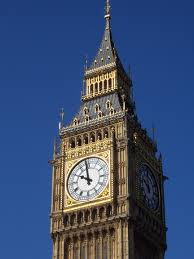I was pondering why we put the clocks backwards and forwards at each respective point in the year and wondered how it all started. I also wondered what the potential advantages would be of having our time permanently fixed to GMT + 1 hour.
The creation of British Summer Time began with the Summer Time Act of 1916. In that year summer time began on 21st May and ended on 1st October. The original intention had been to advance summer time by a total of 80 minutes using 20 minute incremental changes over a number of weeks in April with the reverse changes taking place in September. That particular part of the plan was dropped as unworkable. It is no coincidence that this change took place in 1916 when Britain was at war. By 1916, German U boats had taken their toll on shipping and food production domestically had plummeted as many men had gone to war. Consequently, summer time was seen as a potential way of boosting food production.
The Second World War saw a change to the established pattern when in 1940 it was decided not to return GMT in the autumn. In the following years the clocks were advanced by a further hour each spring but put back an hour in the autumn. The result of this was that Britain experienced a number of years of Double Summer Time. Again, the motivation behind it was to boost agricultural production but also now it was clear that it helped save fuel consumption too. Although the war ended in 1945 and things returned to normal time-wise, a further bout of Double Summer Time occurred in 1947 when there was a particular fuel shortage.
In the years since the 1940′s there have been periodic attempts to keep the UK on GMT +1 hour all year round. In the 1960′s there was an experiment one year and data was collected to evaluate the results. It appeared to show that accidents fell sharply as a result of keeping British Summer time BUT the results were confused by the fact that tough new drink drive laws had been introduced at about the same time.
Modern campaigners in favour of keeping GMT + 1 hour or for going to Central European Time (CET) have a number of arguments at their disposal. Firstly, they say that it will enormously benefit the tourism industry and make autumn breaks and winter breaks all the more appealing. Once again they say that there is clear evidence that across the UK as a whole likes will be saved. Environmental campaigners have calculated that with the energy saved by such a move it would be the equivalent in emission terms as permanently removing a 150,000 cars of British Roads.
Inevitably, there are some who oppose the move, most notably those in Scotland and their views have held sway. However, more recently, many English people have expressed impatience with the Scots and the perception that the Scots continually get advantageous treatment when compared to the English. Consequently, many English people favour going ahead with permanent summer time or to Central European Time even if the Scots choose not to.
In the far south of Devon, where the climate is mild, having permanent summer time would be pleasant and having double summer time even better. However, even as things stand it is possible for guests to come away and enjoy short breaks during the winter. The English Riviera and Torquay in particular have adapted themselves to all year round destinations. Whilst the rest of the country might be experiencing the worst of winter canny guests keep an eye on Torbay and snap up Last Minute Deals when it is clear that weather will be mild and dry. From guest accommodation to self catering apartments, there is something available all year round.

